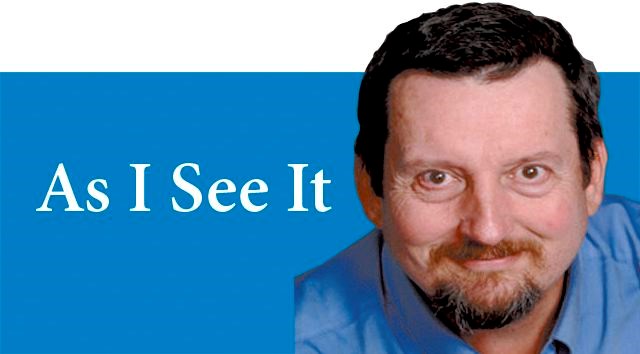Article 19 of the United Nations' Universal Declaration of Human Rights states: "everyone shall have the right to hold opinions without interference" and "everyone shall have the right to freedom of expression; this right shall include freedom to seek, receive and impart information and ideas of all kinds, regardless of frontiers, either orally, in writing or in print, in the form of art, or through any other media of his choice."
This is the basis of free speech. It is a necessary plank in the platform of any democracy. And it is increasingly being questioned on campuses across the country.
What if the person's opinions conflict with yours? What if what they say offends you? What if their view is, in your opinion, wrong? Or inflamatory? Or biased? Or mis-informed?
Should we allow such people to speak?
At the heart of democracy is the idea people are entitled to their opinions. They are entitled - up to a point - to express those opinions. Whether on a campus, in a public gathering, or through media, diverse opinions should be heard.
However, where do we draw the line? If what they say incites violence or abuse directed at someone else? I would think most of us would agree such speech should be restricted. Someone who is calling out a particular segment of the population in an objectionable manner should likely lose their right to utter such language.
There are many examples of this in our culture. We generally refer to such cases as hate speech. And there is legal recourse. But even the Supreme Court of Canada is very cautious in considering exactly where the boundary should lie.
For example, if someone would prefer the use of a gender neutral pronoun when they are being addressed and another individual refuses to do so, whose rights are being violated? Arguably both individuals. How do we as a society deal with such issues?
Last week, Dr. Emmett Macfarlane spoke about "Freedom of Expression on Canadian University Campuses" at UNBC. Dr. Macfarlane is a faculty member in the department of political science at Waterloo University and had a front row seat to the recent freedom of speech case arising at Wilfred Laurier just across town. There are many issues arising out of the Lindsay Shepherd affair and the whole issue went well beyond simply a matter of freedom of expression.
The discussion at UNBC focused more on local issues but it couldn't help touching upon the case of Donald Trump. The American president walks a fine line within his speeches at rallies and sometimes even crosses over. He has gone so far as to condone physical assaults on participants who disagree with him and suggested they should be forcibly removed.
Perhaps more importantly, the Donald has engaged in a protracted and contentious relationship with the press. He loves the media because they carry his messages. Yet he continually berates the media for its fake news. Undermining the media's ability to record and broadcast his utterances and tweets calls into question the fundamental necessity of freedom of expression within a democracy.
It grates at the very core of democracy. Everyone has a right to their opinion and to express their opinion. This applies to both the Donald and the New York Times, the Washington Post, MSNBC, and any other media outlet.
More to the point, perhaps, is Daniel Moynihan's observation everyone is entitled to their own opinion but not their own facts. But this is a much more protracted discussion in a time when even video of someone saying or doing something is not viewed as credible evidence.
In any case, to bring this closer to home, I have been trying to understand the issues underlying the referendum on proportional representation. As far as I can tell, there are two basics issues which re-occur in the rhetoric. The first is simply a desire not to have either of the major parties (the B.C. Liberals and NDP) in power.
The second is around not being heard. "This government or that politician is not listening to what I have to say" seems to be the theme.
And yet this is the very nature of democracy.
We should all be allowed freedom of expression but this doesn't mean we are afforded the right to have everyone listen to what we have to say.
Perhaps more to the point, democracy rests on the will of the majority. If the majority hears a good idea, a view, a proposal, or a piece of legislation, it will be successful. A case could be made that this is the basis for the legalization of marijuana. The majority has spoken.
But if an idea does not catch on, should it have representation within government because some people think so? The right to freedom of expression does not come with the right to be heard.



